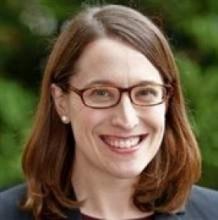AMERICAN POLITICS & PUBLIC POLICY WORKSHOP
Abstract: “Message politics” are thought to be of increasing prevalence in the U.S. Congress (e.g. Lee 2016); rather than attempting to actually adopt new policies, legislators use the legislative process to generate issue records that can be used in future campaigns as their parties seek to gain or maintain majority control of the chamber. The incentives to engage in “message politics,” however, vary across individual legislators. For some members, the practice may run counter to their own individual goals. To explore how senators allocate their legislative effort across these collective and personal legislative ends, I use data on amendments to the yearly budget resolution, which is considered under special procedures that make it particularly suitable for analyzing the interaction of individual incentives and collective goals.
Molly Reynolds is a fellow in Governance Studies at Brookings. She studies Congress, with an emphasis on how congressional rules and procedure affect domestic policy outcomes.
She is the author of the book, Exceptions to the Rule: The Politics of Filibuster Limitations in the U.S. Senate, which explores creation, use, and consequences of the budget reconciliation process and other procedures that prevent filibusters in the U.S. Senate. Reynolds received her Ph.D. in political science and public policy from the University of Michigan and her A.B. in government from Smith College.
Cosponsored with the Institution for Social and Policy Studies, each seminar features a presentation of current political science research by leading scholars in the field, including distinguished faculty from other institutions, research fellows of the CSAP, and Ph.D. candidates at Yale.
